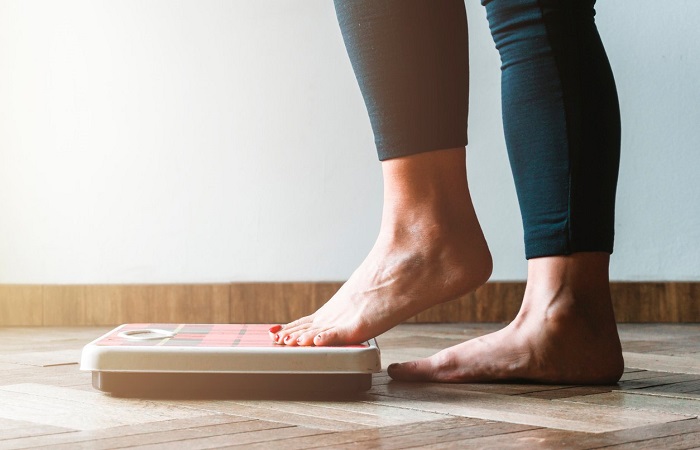Menopause occurs at the time when menstrual periods a woman end up permanently because as you get older, the ovaries are producing fewer female hormones like estrogen and progesterone. This stage usually appears around the age of 50 but is variable in each woman; If it occurs before the age of 45, we will be facing a case of early menopause, and if it has not happened after the age of 55, of late menopause. The hormonal decline that occurs leads to a series of changes in the female body and the suffering of specific symptoms that can affect both physically and emotionally. To know how to identify them, in this FastlyHealarticle, we show in detail the symptoms of menopause and give good recommendations to alleviate and overcome them.
Table of Contents
Changes in the menstrual cycle
Before menopause, the period of changes that the female body undergoes due to the hormonal alterations is called perimenopause, which can last several months to years. This will be variable in each case. In this period, essential changes in menstruation begin to be perceived, as it is interrupted but return on several occasions.
Changes in the menstrual cycle are the first symptom that women perceive before menopause; the periods are likely no longer as regular, occur less frequently, and flow is less or more abundant. Although all these changes are expected, it is advisable to remain vigilant and go to the gynecologist as soon as possible in case:
- Menstrual periods happen very close to each other.
- The flow is too heavy.
- Abnormal bleeding occurs between periods.
- Menstruation lasts longer than one week.
Hot flashes and sweats
Suffering from hot flashes and intense sweats is one of the most common and earliest symptoms of menopause. These appear due to the decrease in estrogens, which causes the body temperature to rise considerably. They are more frequent at night, and the woman usually experiences a great sensation of heat that rises from the chest to the neck and face and other symptoms such as redness of the skin, dizziness, or headaches.
In case of severe hot flashes, it is essential to consult your doctor. The following recommendations should also be put into practice to alleviate them: keep cool by wearing light clothing, always have cold water at hand, reduce the temperature of the room, take lukewarm showers Before sleeping, use cotton sheets, do not eat fatty foods, and avoid those elements that can trigger or aggravate them such as stress, alcohol, caffeine, tobacco, hot foods or drinks, hot baths, and sweltering climates.

Lack of calcium
The decrease in bone mass accelerates and is more pronounced during the menopause stage due to the reduction of estrogen levels since these are very important to maintaining strong and healthy bones. Because the bones become more fragile, menopausal women have a greater risk of suffering from osteoporosis. That is why it is essential to maintain good calcium levels.
It is advisable to consult with the doctor to make sure of the bones’ density and follow the instructions to prevent or treat osteoporosis. Calcium supplements or increasing the consumption of calcium-rich foods in the daily diet may be recommended.
Urinary tract problems
The reduction of estrogens causes the muscles of the bladder to weaken, and as a result, women during menopause may have problems controlling the emission of urine. This gives rise to stress urinary incontinence. An uncontrollable urge to urinate appears, and urination can escape when making certain efforts such as laughing, coughing, sneezing, climbing stairs, running, etc. In addition, you may feel a strong urge to urinate very frequently or notice a burning sensation during urination.
Faced with these types of problems, it is essential to speak with the doctor to see if it is necessary to receive some treatment to help regain control of the bladder.
Weight gain
The hormonal deficit of estrogen and progesterone also tends to accumulate fat and lose muscle mass, accentuating as one advance in age. This makes many women tend to gain weight in menopause and gain volume. It has been confirmed that bodyweight increases between 5 and 10 kilos more than usual.
During this stage, to keep weight under control, it is essential to have a balanced and healthy diet rich in vegetables, fruits, and whole grains, limit the consumption of saturated fat, sugar, salt, and alcohol, drink plenty of water to avoid fluid retention and remain active through moderate physical activities. In the case of being overweight, it is best to put yourself in the hands of a nutritionist to design a diet and an appropriate weight loss plan.

Vaginal dryness and loss of sex drive
Menopause can also lead to essential changes in the intimate area’s health, with vaginal dryness being widespread. This condition results from hormonal changes and a narrowing and loss of elasticity of the vaginal walls, which causes them to produce a lesser amount of natural lubricating fluid. Because of this, it is common for women to experience pain during sexual intercourse, as both manual stimulation and penetration can be very annoying and uncomfortable.
To treat vaginal dryness, it is recommended to use water-based lubricants during sexual intercourse, apply intimate moisturizing lotions, avoid irritating products in the personal area and consult with your doctor to see if there is any vaginal treatment with estrogen.
In addition to vaginal dryness, libido and sex drive can also be reduced during climacteric.
Fatigue and sleep disorders
It is common for menopausal women to have difficulty falling asleep and getting a good night’s rest. This is mainly due to the decrease in progesterone, a hormone that stimulates and promotes sleep. In addition, hot flashes and night sweat that many also suffer negatively affect sleep quality, causing the woman to wake up due to discomfort and then go back to sleep.
All this will contribute to the onset of fatigue and general tiredness that can make it difficult to perform daily tasks and limit the ability to concentrate.

Psychological disturbances
Depression, sadness, nervousness, irritability, frustration, etc., are some of the most frequent emotional states that women go through during menopause. Mood swings and emotional ups and downs are common because hormonal changes in the body affect brain chemistry.
To cope with the situation and avoid this type of psychological disturbance, it is advisable to stay away from potential sources of stress, rest enough time, do physical exercise, learn relaxation and meditation techniques, and talk about emotions with family, friends, or a therapist if necessary.

This article is merely informative. At FastlyHeal .com, we do not have the power to prescribe medical treatments or make any diagnosis. We invite you to see a doctor in the case of presenting any condition or discomfort.
If you want to read more articles similar to Symptoms of menopause, we recommend that you enter our category of the Female reproductive system.

I am a Surgeon with a diploma in comprehensive ultrasound and surgical care residency, an area I am specializing in. During the exercise of my profession, I have realized the need for patients to know the diseases they suffer, and I can tell you that a large part of their complications is due to a lack of information. Being a health web writer allows me to transmit my experience, without borders, to all those readers eager for knowledge, educate them in the prevention of diseases and promote a healthy lifestyle.

